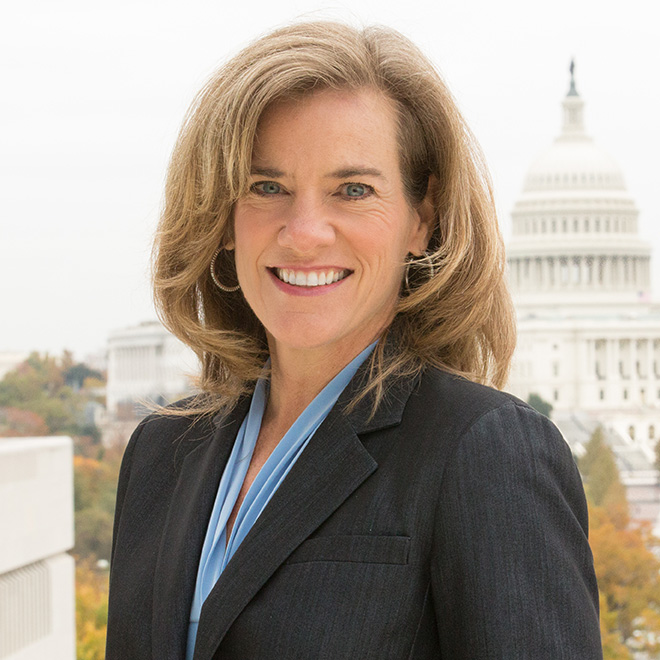Fighting for religious freedom on all fronts

With this edition of Report from the Capital, I am reminded of the variety of BJC’s advocacy efforts through the years, and I’m thankful for the opportunity to make a difference together. I chose legal advocacy as a profession, but I learned how to fight for what is important to me long before adulthood. I trained by growing up with two older brothers and a younger sister, negotiating time on the trampoline, selection of television shows and snack distribution. More importantly, my parents, teachers and leaders in our Baptist church encouraged education and compassion. I felt valued when they answered my questions, and I felt accepted when I voiced my opinions. At home, religion and politics were typical topics of dinner conversations. We had a near constant rotation of visitors, including Mom’s college students and foreign visitors my parents had met during their travels. Their different experiences helped us better understand our own.
I later realized this background led me to a career in law and, eventually, to BJC. Law school and my early experiences in law firms gave me the skills to advance a client’s positions zealously and ethically in an adversarial setting. I also learned that in many situations it doesn’t take a law degree to make an impact. It takes understanding an issue, passion to promote it and preparation for the specific arena. Effective advocacy requires a willingness to use one’s voice and other skills to advance a cause from an informed and constructive perspective. Understanding diverse perspectives and divergent interests also helps.
As BJC general counsel, I represent the cause of religious liberty in the historic Baptist tradition. This work has proven to be important and consistently needed through many political and cultural changes. It is a privilege to work for what we believe is best for religious liberty for all. Sometimes that means advocating for a position because it is right, whether the law requires it or not. As is often the case, just because something is constitutional does not mean it is recommended as a matter of policy.
With so many challenges, we are often asked how we decide which issues to address. It’s a balance between where our voice is most needed and where we can have a significant impact. We’ve learned through BJC’s 80 years of experience to stick to our mission, build on our history and past positions, adjust to changing circumstances, and use our resources wisely. Different venues require different kinds of effort, but in every aspect of our work, our supporters have been our partners, allowing BJC to grow in new and effective ways.
In our legal work, we participate in cases as a “friend of the court.” We file amicus briefs when we can clarify or amplify a principle that is essential for maintaining religious liberty for all. Government should not intrude in matters of faith by co-opting religious symbols or by interfering in how churches make internal decisions, such as about the hiring or firing of ministers. Religious individuals — and those who do not identify as religious — have a right and responsibility to participate in all aspects of civic life, and they should be protected and treated fairly. No one should be denied the safety to worship as they see fit. While religious communities and government entities often work together for common goals, financial and other entanglements should be avoided. The institutions of religion and government should be meaningfully independent.
As advocates for faith freedom for all in a variety of difficult cases, BJC works to defend these principles. We may not always be on the winning side in any particular case, but getting a decision that includes certain distinctions and maintains important principles is crucial for the continuing legacy of religious liberty. Our briefs have sharpened oral arguments and become part of decision-making in the U.S. Supreme Court.
Likewise, our legislative efforts rely on articulating essential and unifying principles. Opportunities are expanded through contacts with government officials — both by us in D.C. and by you across the country. We maintain contact and provide accurate and useful information to congressional staff, working in coalitions with other organizations. You provide connections with your representatives to share concerns as a constituent and help them understand why you care about the issues affecting religious liberty.
BJC’s opportunities have always come from offering a well-informed and trustworthy voice in partnership with supporting denominational entities, churches and individuals. By organizing and advocating in a variety of settings — from the Supreme Court, to Congress, to local communities — we will continue to have an impact in Washington and beyond.
Holly Hollman is general counsel of BJC.
This column appeared in the fall 2019 edition of Report from the Capital. You can read the entire magazine as a PDF or a digital flip-through edition.




